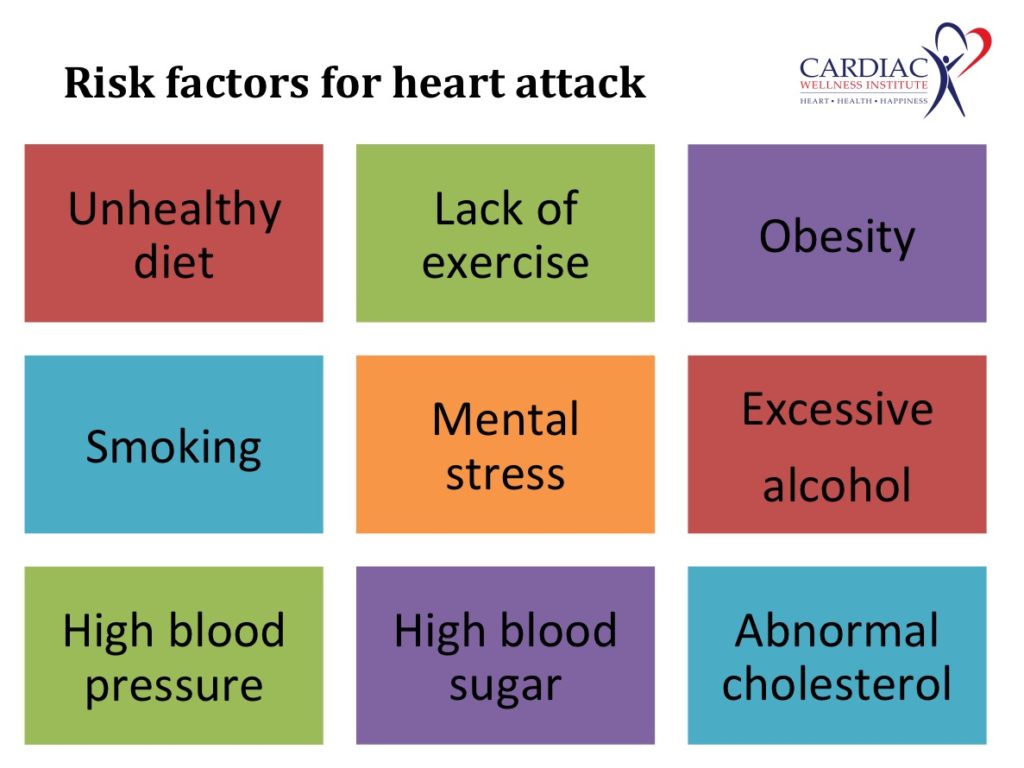Are you anxious and concerned that more and more people who appear healthy and normal are suffering a heart attack? Are you puzzled about how some individuals seem to have an unfair health advantage over others?
Lifestyle risk factors
We have discussed the modifiable and non-modifiable risk factors for heart attack or myocardial infarction in an earlier thread: http://www.cardiacwellnessinstitute.com/heart-disease-treatment-prevention/uncategorized/heart-disease-whats-all-the-hue-and-cry-about/
The INTERHEART study published in the year 2004 provided a major breakthrough in our understanding of the causation of heart attack. The researchers included 15152 individuals with heart attack and 14820 persons without a history of heart disease, from 52 countries, in this study. They identified that the 9 risk factors shown in the picture below are collectively responsible for 90-95% of the heart attacks we see today. Each one of these is an independent risk factor and presence of more than 1 risk factor multiplies the risk alarmingly.
Genetic risk factors
If you have been to a doctor by yourself or with someone, with a chest pain, your doctor would have asked the question “does anybody in your immediate family have a heart disease?” as part of the medical history taking.
Genes, as we all know, are the building blocks of our cells. We derive our genetic imprint from our parents and ancestors, share many of our genes with our siblings and relatives and even pass them on to our children. So, what is the chance that you will suffer a heart attack if your father or mother has had one? It is definitely higher than for your friend who does not have a family history of heart attack. However, research from the recent past provides some interesting insights into the role of lifestyle and genes in causing myocardial infarction.
Over 3000 Costa Ricans, equal numbers with and without myocardial infarction, participated in a medical research study published in 2016. An in-depth analysis of the lifestyle and genetic markers of heart attack in this population revealed that lifestyle risk factors were more strongly associated with heart attack than genetic susceptibility.
Take-home message
Leading a healthy lifestyle has by far the best chance of protecting you from heart attack even though you might have a family history. You might want to start by scoring yourself based on your lifestyle using the SLAM score http://www.cardiacwellnessinstitute.com/heart-disease-treatment-prevention/uncategorized/the-race-against-ourselves/
